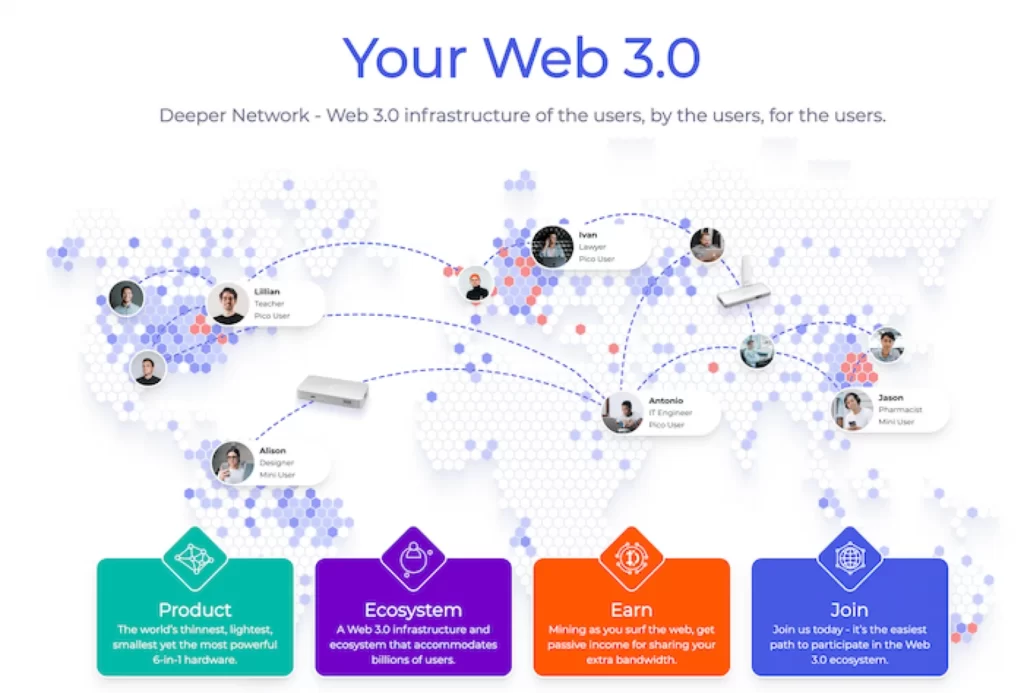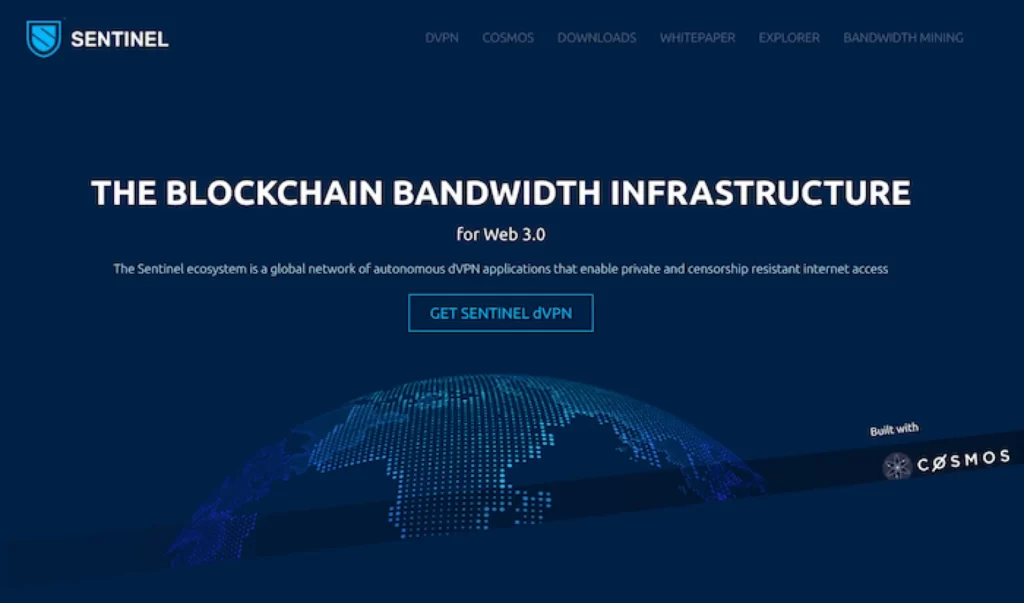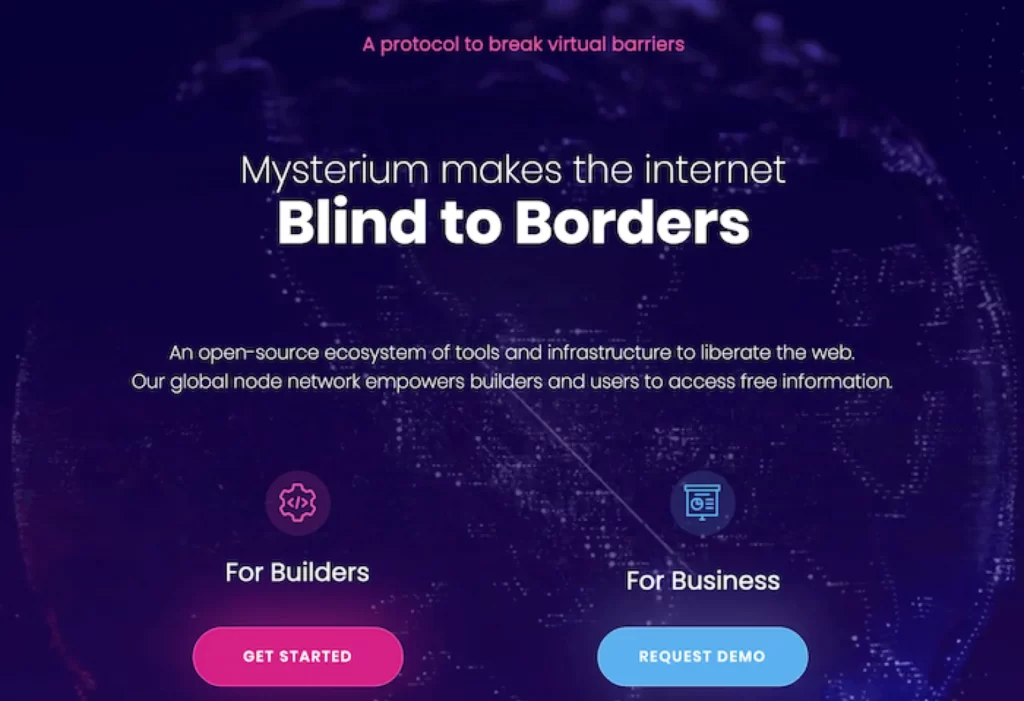Blockchain technology has revolutionized everything in recent years, from how we trade art online to managing our finances and currency.
Information storage and security has always been a logical use case, and that’s precisely what we’re starting to see with decentralized VPNs, or dVPNs. These decentralized virtual private networks are an amalgamation of two technologies designed to safeguard users’ privacy and, ultimately, their online security.
VPNs are designed to hide your online identity using servers scattered around the world. A decentralized VPN works in a similar way by using the servers of different providers instead of a central provider. This feature makes it safer for users and more difficult for hackers or those monitoring a connection to crack.
What is a VPN?
Virtual private networks are servers intended to make the link between a private network and a public network.
Typically, when you connect to the internet, your computer sends data to a public network, such as a website or social media platform, which in turn sends data back to your computer.
Using a VPN server adds an extra connection to the mix by making it look like you are connecting somewhere outside of your home or even your country. This extra step makes the endpoint – your PC – appear to be in an entirely different place when that data comes back to your machine.
VPN software is an application of this technology for the user. Thanks to sophisticated encryption and an easy-to-understand user interface, all Internet users now have the option of hiding their connection to online services.
Most of the best VPN services we feature on our site fall under the centralized VPN category. These VPNs operate within a network of servers owned and controlled by a single entity – the VPN provider.
This way to know the definition of a VPN!
What is a Decentralized VPN?
The problem with a VPN is immediately obvious. If you send all your data to one company, what’s stopping them from becoming a bad actor or handing it over to anyone who asks for it or buys it?
A centralized point of failure is built into the services, and while they’re much safer than surfing the web without a VPN, they’re not perfect solutions.
This is where decentralized VPNs differ from traditional centralized VPNs. Decentralized VPNs “decentralize” ownership and control of VPN servers. This means that servers are scattered around the world – owned and controlled by different entities. Instead of VPN providers, dVPN servers rely on volunteers who allow others to tap into their unused bandwidth.
Read also: how to install google one vpn on windows and mac
Read also: is protonvpn safe yes heres why
Read also: Proton presents its new offer, a unified ecosystem dedicated to cybersecurity
Read also: 9 security tips to protect your website against hacking
Read also: What is the best DDOS protection for your website?
Read also: Betternet VPN Premium full v5.3 Free Download in 2021
Why should I use a VPN?
Every day, we are becoming more and more dependent on the Internet in our activities. Much of our daily life revolves around web-connected services, be it calendars, email, video streaming or text messages. What allows us to be connected with anyone in the world also exposes us to attack from anyone in the world.
Connecting to the internet means that the internet also connects to you. It is a two-way information channel that requires you to compromise on privacy to use it. Naturally, no one wants a sleazy person behind a computer to be unable to peek into their most private information. One of the best ways to avoid this is to use a VPN.
VPNs anonymize your IP address by transmitting your data to a company-owned server. By sending a data packet to this server, you send a message to the online service or website that your location, IP address and personal data are prohibited.
It is a sort of shield that blocks unwanted third-party access by consolidating thousands of users on a single server, making this data virtually useless to third parties.
What are the most popular decentralized VPNs?
Deeper Network
Deeper Network uses both blockchain and firewalls to protect its users. It also offers smart routing, multi-routing, and unregulated access to any country – all without affecting your internet speed.

Businesses can also rely on its enterprise-grade version that protects against trackers, Trojans, and malicious logins.
Sentinel
Sentinel is a dVPN that allows users to earn tokens by sharing their bandwidth.

Sentinel is based on Cosmos and built with Tendermint (a project we love at OD) and pays you with its own token to let other Sentinel users use your excess bandwidth. Another really neat thing about Sentinel is that it is designed to reduce its carbon footprint by allowing dVPN servers to share their resources.
Mysterium
Another dVPN that is getting a lot of buzz right now is Mysterium. Mysterium, in addition to typical dVPN features, allows users to run their own independent nodes.

It also boasts an impressive 1,800 connections spread across 80 different countries. For users on a tight budget, Mysterium is one of the few dVPN providers to offer a pay-as-you-go system. You only have to pay for each gigabyte of data you use.
